Daniel P. Schmidt and Michael E. Hartmann talk to the Hudson Institute senior fellow and former Joyce Foundation and German Marshall Fund president about philanthropy and international affairs.
After joining the program staff of the Joyce Foundation in Chicago in 1980, Craig Kennedy became Joyce’s president from 1986 to 1992. A South Dakota native, Kennedy then worked for an investor, opened a consulting firm with nonprofit and public-sector clients, and advised Chicago Mayor Richard M. Daley on education issues.
In 1995, Kennedy became president of the German Marshall Fund (GMF) in Washington, D.C. GMF was founded in 1972 through a gift from Germany as an expression of gratitude and a permanent memorial to the assistance provided by the United States as part of the Marshall Plan after World War II. It fosters and strengthens transatlantic cooperation. During Kennedy’s years at the helm of GMF, which he left in 2014, it opened five new offices in Europe and added more than 100 staff members.
Kennedy is now a senior fellow at the Hudson Institute in Washington and advises several companies and nonprofit groups around the world. He also serves on several corporate and nonprofit boards.
He is both intellectually rigorous and curious. He is as comfortable in international diplomatic settings as he is in informal neighborhood ones, and he thoroughly enjoys engaging with people in both.
He was kind enough to have a discussion with us in July, an edited transcript of which is below.
Hartmann: You left Beresford, S.D., in 1970 to go to The University of Chicago. Is that right?
Kennedy: That’s right, to get a B.A. in Civilization Studies.
Hartmann: And how has that education helped you in your career?
Kennedy: That was the first time I had been thrown into an intellectual milieu like Chicago. There was the stimulation of being around lots of smart people at a time when there was a lot going on. It’s also where I met the woman who’s now my wife. I made a lot of other connections there that proved to be both intellectually and professionally and personally important to me over the course of my life.
Hartmann: So you got your B.A. in ’74. And then you got another degree at Chicago?
Kennedy: I went to graduate school in anthropology and decided that what I was really interested in was not being an academic, and I probably wasn’t going to be a very good one for all sorts of reasons. I was looking for something that would be interesting and socially useful. At the time. I was very interested in aging and issues around that. So we went back to Chicago at this point, and I went to both the business school and the school of social work, as part of a joint-degree program. My wife was over at the divinity school doing a degree in the history of religions. That’s how we how we got back there.
Then, when I finished up my two degrees in ’80, I went directly into the foundation business with The Joyce Foundation in Chicago.
Hartmann: What did Joyce have you do first?
Kennedy: At the time, they had two other program officers and I did the things that they didn’t want to do. One of them was really focused on higher education. They did a lot of work with liberal-arts colleges at the time. The other person did cultural programming. So I did everything else. They were setting up a program around environmental issues, so I worked on that. I did education reform in the early ’80s. I did work on immigration reform, back in the days of Simpson-Mazzoli. I picked up the things that other people didn’t want to do, but it turned out to be pretty interesting.
Hartmann: Would it be fair to put Joyce in the liberal category?
Kennedy: I think that it’s fair to say that Joyce has always had a strong liberal component to it. It’s also been a place—even going back to the guy that I worked for, Chuck Daly—that’s been willing to go against the grain of the liberal world. One of the things that he did was send me off each year, because of modest contributions of like $10,000 or $15,000, to Heritage Foundation meetings, where I met a lot of interesting people. This is in the middle of the Reagan Revolution, and it was terrific.
It certainly was liberal, but never doctrinaire in the way that maybe some of the others were. Joyce often was criticized for not being more doctrinaire, but they were what they were.
For me, it was a great experience. I got to meet a lot of interesting people and do a lot of interesting work, and I was rarely told to back off. People pretty much let me do what I thought was right, and the board was a very supportive crew at the time. It was a good experience.
Hartmann: Has it changed since?
Kennedy: Well, all of philanthropy has changed. In those days, places like Joyce and Bradley probably ranked up in the largest givers in America. Nowadays, with all these mega-wealthy billionaires out there throwing money around, they’ve got to play a different game than they did then. Then, they could be not a comprehensive funder—we always had limits on what we did and so forth—but they didn’t have to be highly, highly disciplined and strategic. You could cover a lot of ground, because there wasn’t a lot of other big money out there. A place like Joyce or [the] Bradley [Foundation], they weren’t big like Ford, but they were big enough that you could do significant projects. Nowadays, I think it’s a much-tougher game for a foundation that size to be influential.
Someone that I hired when I was there [Ellen Alberding] is the president today, and she’s done a great job. They still do some things that are a little out of the ordinary. They’ve putting a lot of focus now on how to deal with the fiscal crisis in Illinois, which is significant. I think they’re really doing positive work in that area. I still see good things coming out of them.
Yes, it’s different, but I guess that’s always going to be true. In a weird way, I was sort of an anomaly as the president there, with a little different sensibility maybe than some of the other people.
Ideas in philanthropy, politics, and policy
Schmidt: Is there any downside to the, as you sort of say, “embarrassment of riches” out in the philanthropic world?
Kennedy: I used to get invited to talk to groups about raising money. At the time, in the mid-1980s, I would say I don’t think anybody with a good idea should not be able to find donors out there. Even then, I felt there was enough money that you should be able to find someone if you have a good idea and you know how to present it in a halfway-decent way.
Now, I think it’s almost gone a step beyond that. I think if you have a stupid idea, you could run into someone who may be a genius in software or biotech or something, but really doesn’t understand the nonprofit world, who will be willing to plunk down huge amounts of money on what you’re doing.
When I look out there, I’m kind of struck by both the number of curious things that get funded. I’m also amused that the hardy perennials, like giving huge grants to Harvard or the University of Chicago or whatever, is still one path through which people gained fame and legitimacy. I would have thought that had become a little déclassé over time, but it’s one of those hardy perennials that keeps going.
I don’t know, maybe it’s the sound of an old man talking. I thought the best years my philanthropic life was probably the late ’80s—when you had still the pressure coming from the Reagan years, you had a whole movement in the Democratic Party, led by Bill Clinton and others, to rethink the role of markets and how to use markets for social goods and so forth. It was the beginning of charter schools. Lots of things like that were going on then.
Maybe I just miss it now, or maybe I’ve become more jaded, but it just doesn’t seem like there’s quite as much really cutting-edge innovations going on now as there was. I might just not be connected with the hip thinkers in philanthropy anymore.
Hartmann: Do you think politics currently shows a lack of underlying ideas?
Kennedy: For all of the things that I dislike about the President of the United States, in terms of his style and his rhetoric, etc., he has probably done more to create a serious policy debate in the United States about important issues than anybody I can think of in the last, I don’t know, 30 years. Whether you take the issue of immigration, or China, or even kind of in a backhanded way the issue of abortion, people have become more subtle and thoughtful about a topic that they might have been before.
It’s strange, because I don’t think anybody would call him a great intellectual, but he has figured out that there was a whole set of issues that were unresolved, and that someone who would be able to bring them up in a very blunt, direct way could get them dealt with.
Do you think that when he’s gone, anybody will ever be able to say again with a straight face that free trade is good for everybody? It might be good for the country as a whole, it might be good for you and me, but probably no one’s going to have the guts to say that it’s good for everybody anymore. That’s an interesting thing.
Hartmann: Is this an indictment of policy-oriented philanthropy since the ’80s?
Kennedy: I read the piece you both wrote on this, and I thought it was right on. I think everybody in philanthropy, right and left, missed [that which gave rise to Donald Trump’s political ascendancy]. Now, I will say that the one thing that it reminded me of is when I started in philanthropy just before the “political shock” in mid-November of 1980, when people realized what had happened. The shock in at least liberal circles was probably almost as sharp. Maybe not quite, but almost.
If you remember, the first thing they started doing was cutting back on endless programs. They got rid of VISTA. They have rid of this and that. There was really a sense that something major and significant had happened. That would probably be the closest thing to it.
I don’t think conservative funders figured out that there was a chance this could happen. I’m absolutely certain that very few of the liberal funders had figured out what was going to happen.
Hartmann: What did you do between your time at Joyce and before coming to GMF?
Kennedy: I’m getting ready to turn 40. I’ve got three small kids at home. It’s the middle of a recession. I’m on my way to go to Poland to do a project with the OECD there on community development. This is 1991. My spouse, who’s always a good judge of my moods and temperament, turned to me and said, “I think you’re really bored doing this job. I think it’s time for you do something else.” Before I got on the plane that day, I called up the chair of the board and said I’m going to be gone in six months.
I ended up then working for a terrific guy in Chicago, a trader who has a very strong libertarian bent. That was part of my work. I was an advisor to the mayor of Chicago [Richard M. Daley] on school reform, which was interesting because it was at a point where there was real chaos in the public-school system in Chicago. And I did consulting with various nonprofit groups and others. I had about three years of all of that and then I came to GMF.
Challenges of international grantmaking
Hartmann: What were the German Marshall Fund’s emphases at the time and how did you reorder them or change them?
Kennedy: A lot of GMF’s work when I arrived was really focused on domestic-policy changes. They took a lot of people from different places in the country, usually working with governors, and brought them to Europe to see how Europeans were addressing things like the management of juvenile-justice systems, of urban planning, things like that. When I got there, we continued doing some of those projects, and it’s still part of GMF.
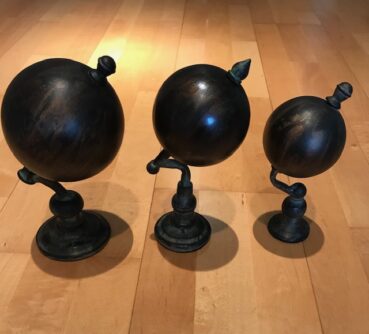
At the time, it was also clear that there were hardly any funders that were doing any work in the areas of foreign policy and especially U.S.-European policy. A lot of what I did the first few years was go around and explore that idea. We then started making some fairly loosely restricted grants to some of the big think tanks in town to get them to do work on transatlantic issues and then eventually got out of that and started doing our own internal work.
Plus, GMF had always had a program that brought young European politicians and journalists to the United States, and I helped set up a reverse program that brought young American politicians and journalists and others, including businesspeople, to Europe to give them exposure to how Europeans think and work and so forth. That program still goes on and has been quite successful in many ways.
Hartmann: Is international philanthropy easier? How is it different than domestic grantmaking?
Kennedy: I worked for the mayor of Chicago. If there was a pothole or a broken traffic light in the morning, someone at City Hall could be told about it, and it wouldn’t be there that night. There was just a sense of actually having the ability to get things done.
I think the higher up you get, the less satisfaction you get out of it. By the time you get to the international stage, you’re really working at the margins. You’re trying to kind of push things just a hair in one direction or another. There’s not going to be any revolutionary moves, for the most part.
Nonetheless, I think we got some good things done at GMF. We did a lot of work in the aftermath of the Balkan wars and created something called the Balkan Trust for Democracy that really, I think, played an important role in the early 2000s in terms of reducing some of the tensions in that part of the world and building up a civil society. There’s a similar project to that called the Black Sea Trust that did work in Georgia, Armenia, Azerbaijan, and Ukraine that’s also still up and running and I think is a really good vehicle for doing some small grants and work on civil society in those areas. I just think you have to have a different scope.
Now, I guess if you’re playing at the level of a Soros, maybe you can shape policy in a broad sense. Certainly, Soros, through his work with the European Council on Foreign Relations, has the one European-wide platform that does influence foreign policy. So it’s not impossible. It’s just a tougher game and there are a lot more moving parts.
Again, when I worked in Chicago, if the mayor and a few key people around him said that’s a good idea, you’d have a pretty good chance that it was going to get a try. There’s a lot of good ideas, I think, at the international level that never get that shot just because it’s too complicated, too hard, too many moving parts, too many other variables that come into play. Nonetheless, I think it’s really important.
Like I said earlier, and maybe it’s unintentional, but President Trump has actually pushed people to think about what our role in the world should be, and what we should expect from our allies, and what we should be doing and not be doing. I don’t always agree with his answers to them, but the fact that he’s gotten people to think about them is a good thing. There are these new initiatives like the Soros-Koch funded group, the Quincy Institute, or the work that The Edmund Burke Foundation is doing.
All of those are a sign of people starting to have important debates and make important arguments right now. I think we went through a long period post-Clinton where everybody was sort of stuck in their corner and defending their status quo positions—whether it was liberal internationalism, or democracy promotion, or whatever. People got into fixed positions and didn’t move much from them.
I think what’s happened over the last two years is that you see a lot more people thinking. Maybe they’re not leaving their fixed position, but they’re at least being forced to think about their fixed position in a more-serious way than they might have before.
Schmidt: What should funders consider doing in these circumstances?
Kennedy: I think funders can do good things in the international area. I think they can do good things if they want to be serious about promoting real debate about the future of the country and where foreign policy should be going. But as you know, Dan, they’ve got to be really willing to take on the “sacred positions.” They can’t be just doing one more version of neoconservative or neoliberal or whatever your poison is, they can’t just be throwing out a cleaned-up version of that one more time. There’s got to be something fresh and that at least reflects that the world is changing and adjusting to some extent.
Schmidt: Any advice for how to best go about doing this?
Kennedy: One of the things I learned from you and [Bradley Foundation president] Mike Joyce and a number of the other conservative funders is that rather than doing fancy group projects, you’re often better off just finding a really smart individual who’s got a passion and an idea. Even if it takes them a while to turn the idea around, it’s still worth it. I’ve become more and more of a kind of methodological individualist over time. The notion that group processes necessarily produce more wisdom than a single smart person, I suppose statistically it might be true, but I think you still get so much more clarity and sharpness when you fund one smart person with a pen rather than a dozen people trying to fight over the direction of an idea.
Hartmann: Soros and Koch notwithstanding, is there donor fatigue with international giving?
Kennedy: I think it depends what you’re talking about. If you’re talking about things that are purely humanitarian, fighting diseases and so forth, I think this is probably something a lot of foundations are doing. You still have some big players like Gates that work in that area and I think do so with real skill. I think there are some players that do much better in that world than they do when they try to get into domestic politics. For very concrete stuff like that, I think there’s not fatigue.
I think the issues of, well, certainly U.S.-European policy issues is not something that’s easy to raise money for anymore—partially because I think, again, the President has made people realize that sometimes our allies are not doing their share, so why should we be investing in thinking much about it?
But more than that, I think there’s just a question of, in that space, how important is it? I mean China has become such an overwhelming issue in a way that it wasn’t just a few years ago. I think if you’re trying to raise money to do something really interesting in the transatlantic space, you’re going to have to look a long time. On the other hand, if you’re out there trying to do something innovative and interesting about China, there’s probably a fairly good amount of money out there.
Hartmann: Where else, just geopolitically, would you look to make effective international grants?
Kennedy: I think one of the tragedies of the last two or three years is that we can’t have serious policy debates about how the United States should be relating to Russia. It’s just become incredibly toxic anytime that topic gets raised in Washington or elsewhere. Listen, I’m no fan of Putin. I think there are awful things going on there. I’ve got all sorts of beefs, but I think that we should probably be having a more-sophisticated policy discussion than simply screaming at the top of our lungs that he’s bad, bad, bad, without having some way to seriously respond to it.
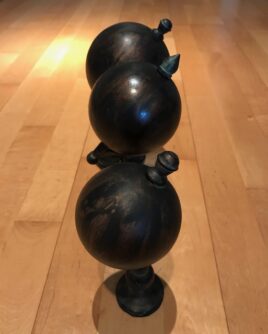
That would be an area where you can really, I think, do some good: start a quiet dialogue between Americans and Europeans on what should be a longer-term strategy about working with or against Russia. There’s got to be something more sophisticated than throwing on more sanctions and pontificating.
Off-the-cuff maxims for givers
Hartmann: Is it less common lately among philanthropies to support “quiet” things?
Kennedy: That’s an interesting question. I think the best funders probably are doing that, but there’s a whole other group for whom their philanthropy is as much about social signaling as anything else. I’m not being critical, but I think a lot of times, it’s not so much the output that they want, it’s to make sure people know that they’re caring and have humanity. There was certainly a time, when we all got started in the business, where I think an awful lot of the best work was done maybe not behind the scenes, but in a very quiet way. My guess is that’s less common now.
Schmidt: From your vast experience in all of this, off the cuff, if you had two or three maxims for a foundation or giver, what would they would they be?
Kennedy: The first would be to pick that issues are really important, but where there are lots of restrictions and taboos around serious debate. Russia is one. Immigration has been one, and that’s changed now. Do not necessarily just to go to issues that pull at the heartstrings. We’re all certainly glad that people work on diseases for children and so forth, but if you’re a policy-oriented funder, actually look at the toughest issues.
The second would be not to come at them with a black-and-white perspective, whether it’s an ideological or political one. If there’s anything I learned that from those years at The University of Chicago, it’s that the world was largely gray, with little bands of black and white on the edges. It’s sorting through the grays that is really complicated and important and requires intellectual discipline.
I think a lot of donors come in and say, we know the solution, it’s just a matter of selling the solution—rather than we know what the problem is, we need to understand what the possible solutions might be.
Then, a third would be to stick with things. There are very few of these big issues that get resolved very quickly. I go back and think about the work that Joyce did on immigration back in the mid-’80s around the time of the Simpson-Mazzoli Act. Most of the same concerns that were common then are still in play. The only difference is at some point, a lot of the serious donors decided that either the problem had been resolved or it was hopeless to try to resolve it. They backed away from any discussions of how to manage borders, the expectations of citizenship, and so forth.
I guess I would add, going to Mike’s question, a final thing: it’s not bad to do your philanthropy quietly, especially if you’re trying to understand problems as opposed to promoting solutions. Another reason that you see so many of these modern donors be so PR-focused is they are promoting the solution, they’re not trying to understand the problem. To them, it is how do we get out there and really get attention from people?
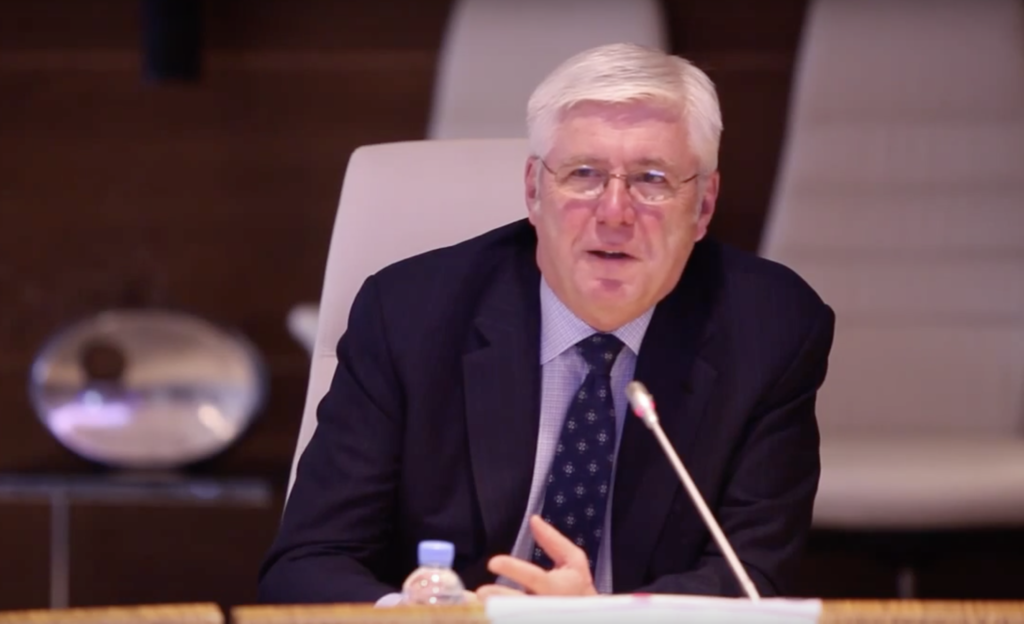



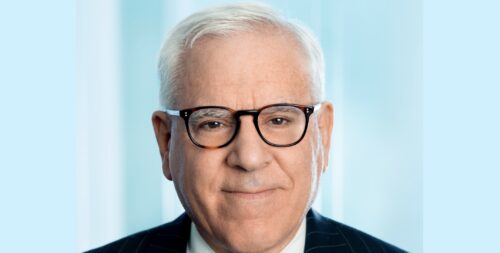
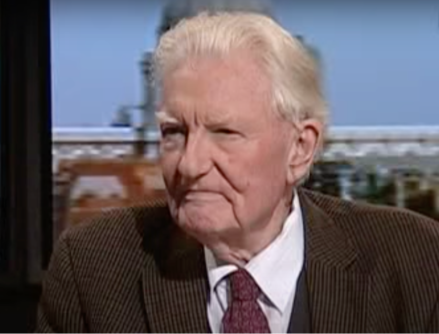
5 thoughts on “A conversation with Craig Kennedy”